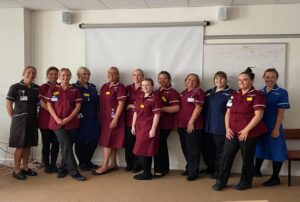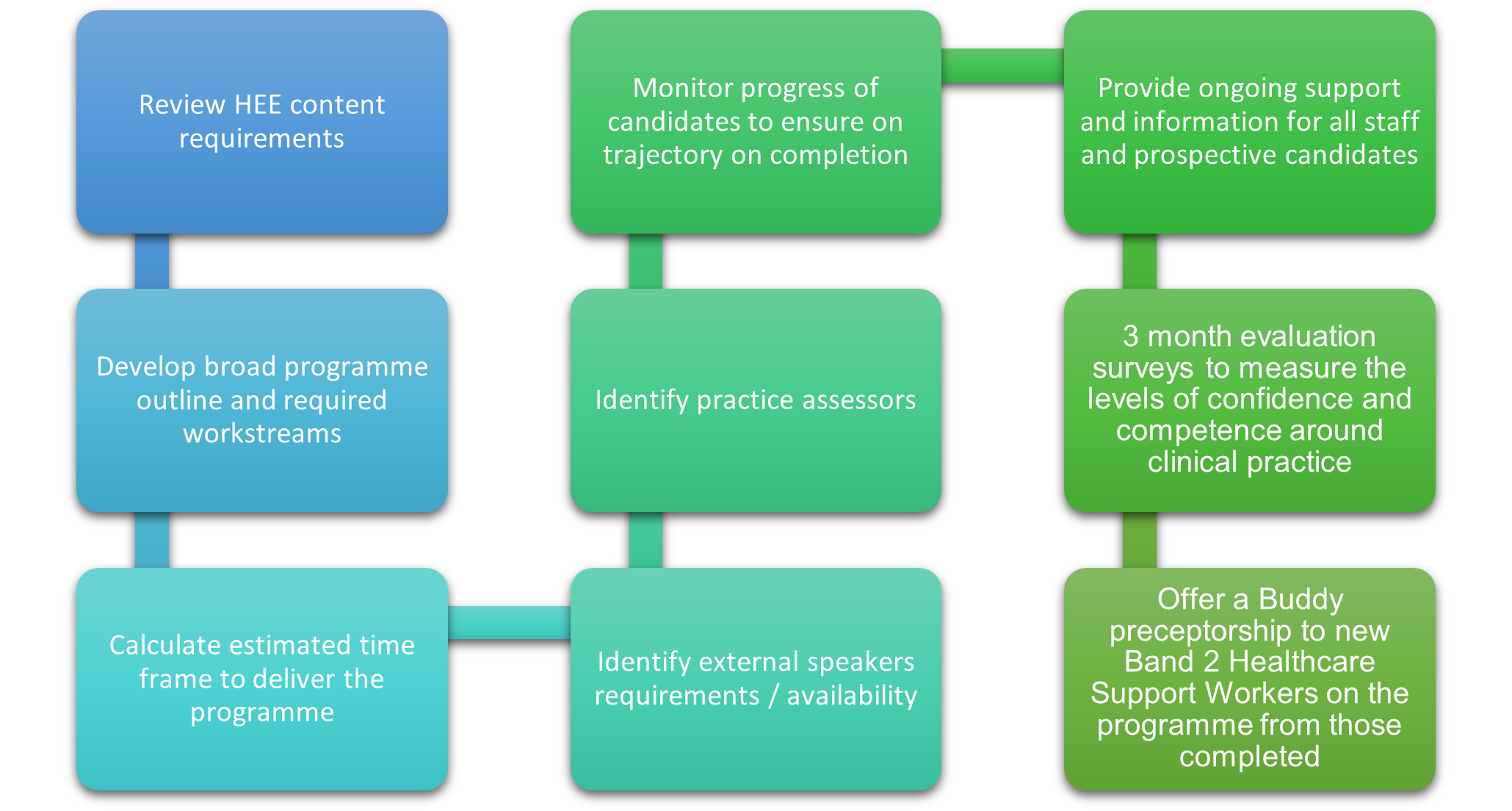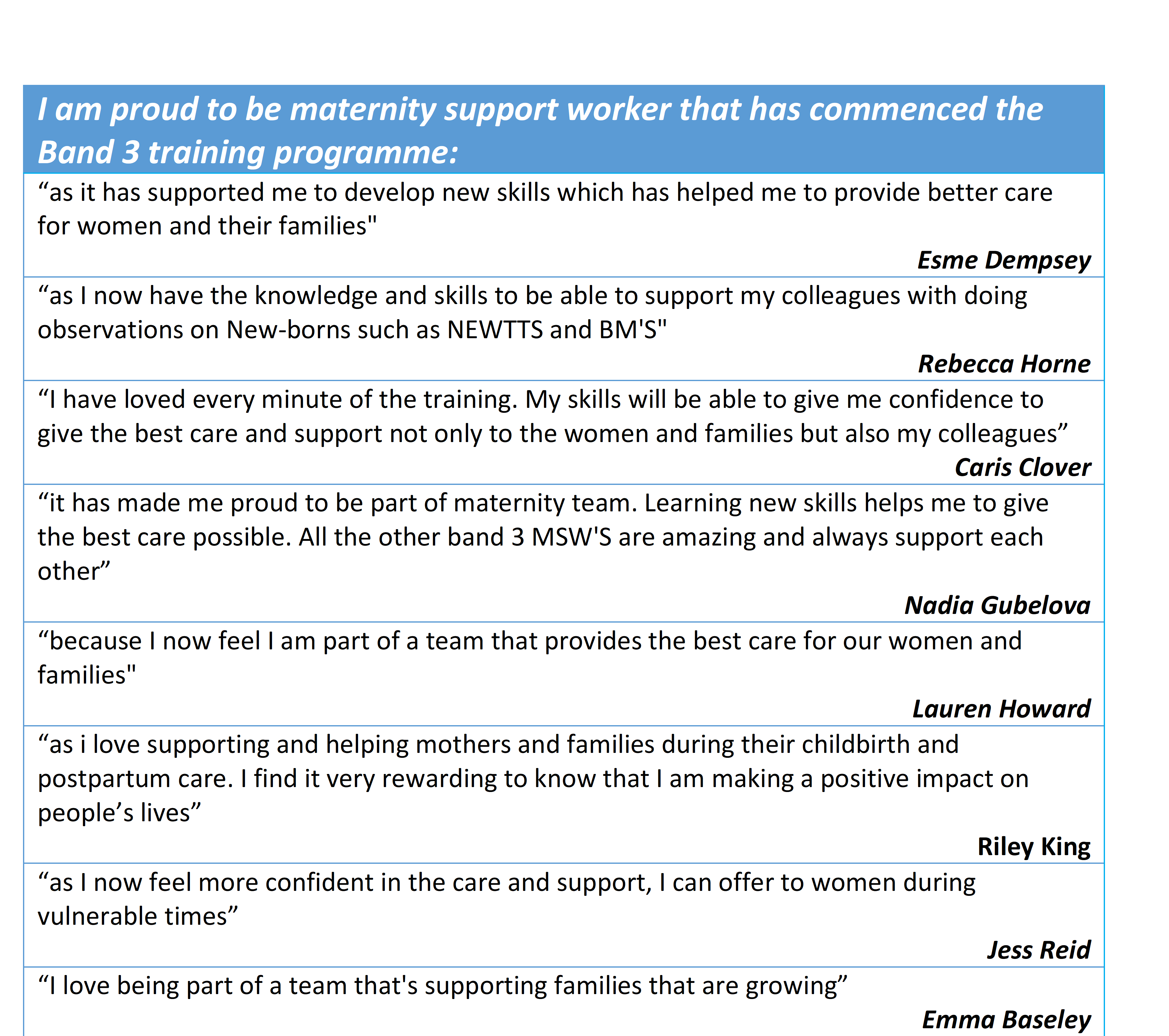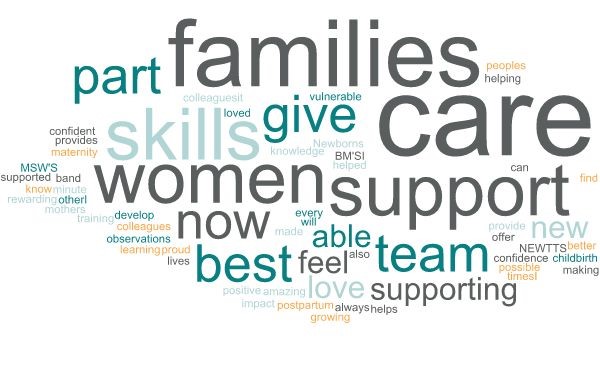 This week’s blog comes from Carrie Daniels (Workforce Matron) and Laura Bourne (Practice Educator) who are sharing their experience of developing a competency programme for Maternity Support Workers at University Hospitals Coventry and Warwickshire NHS Trust.
This week’s blog comes from Carrie Daniels (Workforce Matron) and Laura Bourne (Practice Educator) who are sharing their experience of developing a competency programme for Maternity Support Workers at University Hospitals Coventry and Warwickshire NHS Trust.
In 2021, Health Education England (HEE) published the Maternity Support Worker Level 3 Curriculum as part of their broader work to develop and build the Maternity Support Worker role [1].
UHCW NHS Trust were selected by HEE to pilot the development and delivery of the MSW shortened programme, funding was provided to support with the implementation. This project aimed to strengthen the support women and families receive during the postnatal period through the development of the Band 3 workforce. A pilot in-house six-month training programme was developed to be run twice over twelve months to prepare identified Band 2 Health Care Support Workers with the ‘Care Certificate’ to progress to Level 3 Maternity Support Worker at Band 3 in line with the HEE curriculum. This shortened timeframe will enable larger numbers of identified staff to be upskilled, in order to meet workforce requirements. A curriculum was developed for in-house provision, with supporting e-resources, to include theoretical and practical competency assessment and this will be evidenced in a bespoke document for ‘in house’ assessment.


There have been many benefits of the accelerated programme. It has identified gaps within current apprenticeships allowing for a bespoke training programme to be developed using in-house provision to upskill the current Maternity Support workforce. Appropriately used as part of the midwife to birth ratio, skilled MSWs will translate into a strengthened support of women and families during the postnatal period. This programme has also created the opportunity to develop staff progression within the trust with further development opportunities within the Local Maternity and Neonatal System (LMNS) to support ongoing recruitment and training. We also plan to offer new recruits onto the programme the opportunity to be ‘buddied’ by those who have already completed to further support them.

Some key learning points were identified reflecting on the process. Identifying complete skill sets with MSW selection and recruitment prior to the programme commencing is beneficial. There was an underestimation of the time frame for the recruitment process, programme development and delivery plus the added impact of issues such as the unpredictability of sick leave and absence of participants in the programme as well as those delivering sessions. There was a lengthy time frame for review and ratification of programme content. Planning for the future included increased engagement of ward-based assessors to avoid potential limitations of students’ progress.
In order to ensure that we have met individuals needs in terms of confidence and competence future surveys are scheduled in to ‘touch base’ and ensure that the programme met their personal needs. The evaluations this far have been overwhelmingly positive and the team report feeling well supported.
Don’t just take our word for it, here is some of the feedback shared………
- Health Education England, Maternity Support Worker Level 3 Curriculum, Realising potential to deliver confident, capable care for the future available from: Maternity Support Workers | Health Education England (hee.nhs.uk) (accessed 20/07/23)

